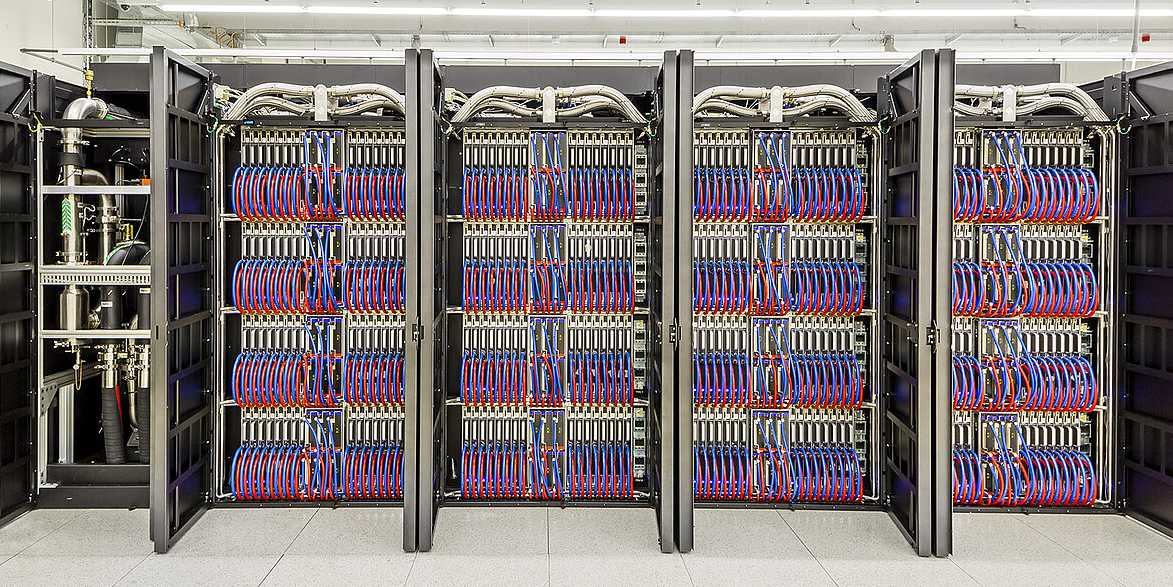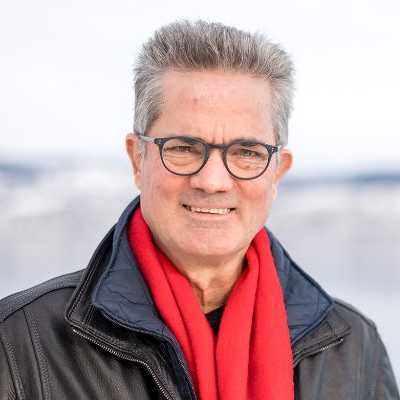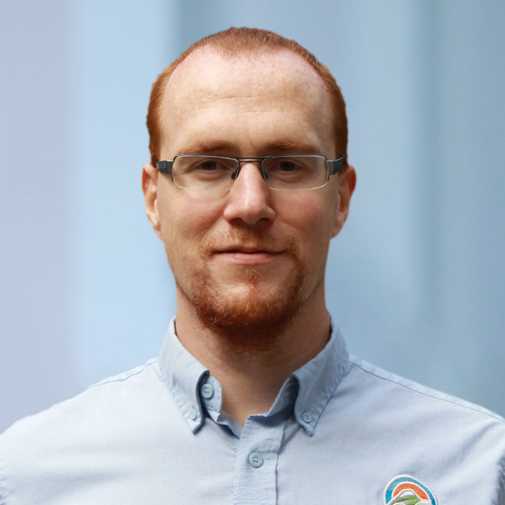Torsten Hoefler joins CSCS as Chief Architect for Machine Learning
From Sept. 1, 2023, Professor Torsten Hoefler will be affiliated with the Swiss National Supercomputing Centre (CSCS). CSCS, with its upcoming new “Alps” high-performance computing (HPC) infrastructure, and the ETH professor want to jointly test and advance methods and applications for machine learning (ML) and artificial intelligence (AI) applications.

Computer scientist and ETH Professor Torsten Hoefler has headed the Scalable Parallel Computing Laboratory (SPCL) at the Department of Computer Science at ETH Zurich since 2012. As of Sept. 1, 2023, he will also be part of the Architecture and Technology workgroup as Chief Architect for Machine Learning at the Swiss National Supercomputing Centre (CSCS). In this new role, Hoefler will help shape the centre's strategy related to these new and exciting technologies.
The highly distinguished specialist in the field of HPC and ML has for years acted as an important link between CSCS and researchers in classical scientific fields such as physics, climate research, and materials research. This is particularly the case in the context of interdisciplinary projects connected to the Platform for Advanced Scientific Computing (PASC), initiated in Switzerland. In PASC, scientists from various research domains optimise and develop their codes and algorithms in close cooperation with mathematicians, computer scientists, software developers and hardware manufacturers with the aim of making them efficient for state-of-the-art computer architectures — both in terms of computing time and energy consumption.

“Machine learning and artificial intelligence have become important elements in the field of computational research.”Thomas Schulthess, ETH Professor and Director of CSCS
“Alps”, the new research infrastructure at the Swiss National Supercomputing Centre that will replace the “Piz Daint” supercomputer in the course of next year, is expected to be particularly suitable for AI applications in addition to classical simulations. With the system and its new capabilities soon to come online, Hoefler's direct affiliation with CSCS is a win-win for all sides. “Machine learning and artificial intelligence have become important elements in the field of computational research”, says Thomas Schulthess, ETH Professor and Director of CSCS. “We have yet to show how reliable these methods are and to what extent they can complement or even replace classical HPC through serious, reproducible research examples. For CSCS to soon begin providing access to an innovative HPC infrastructure in “Alps”, it is all the more important to have Torsten and his know-how on board.”

“We are just at the beginning of a revolutionary change that will not only affect science, but all areas of our lives.”Torsten Hoefler, ETH Professor and Chief Architect for Machine Learning at CSCS
“We are just at the beginning of a revolutionary change that will not only affect science, but all areas of our lives”, says Hoefler. “Applications like ChatGPT allow us a first small glimpse into the possibilities that AI will offer in the future. Our goal is to make these new capabilities available to researchers in computational sciences as easily as possible. I am extremely excited about this new role at CSCS.”
Since this spring, the main players in the fields of HPC, data science, and artificial intelligence at ETH Zurich—the SPCL, the CSCS branch in Zurich, the Swiss Data Science Center, and the ETH Zurich AI Center—have been strategically united in one building. According to Schulthess, this proximity lays the groundwork for increased collaboration and innovation: “I am convinced that this spatial proximity can lead to exciting and important collaborations, and thus move ETH Zurich and Switzerland forward in an innovative and successful way.”
More about Torsten Hoefler
Torsten Hoefler is a full professor at the Department of Computer Science at ETH Zurich. In this role, he has headed the Scalable Parallel Computing Lab since 2012. Before coming to ETH Zurich, he led performance modelling and simulation for the first petascale supercomputer, “Blue Waters,” at the University of Illinois at Urbana-Champaign. His research aims to understand the performance of parallel computing systems, from parallel computer architecture to parallel programming and parallel algorithms. He is also active in the application areas of weather and climate simulations as well as machine learning, with a focus on distributed deep learning. Torsten Hoefler has received numerous awards for his work, most recently the Jack Dongarra Early Career Award, which was presented for the first time this year. He was appointed an IEEE Fellow as well as a member of the Academia Europaea. He also received the Latsis Prize from ETH Zurich in 2015, the ACM Gordon Bell Prize 2019 and two grants from the European Research Council (ERC).